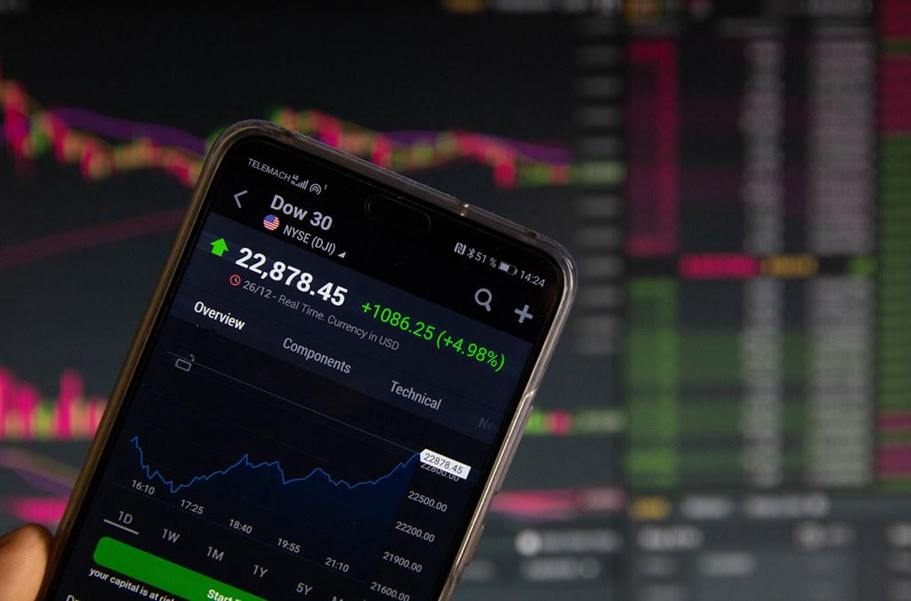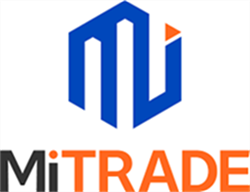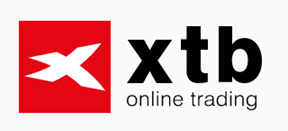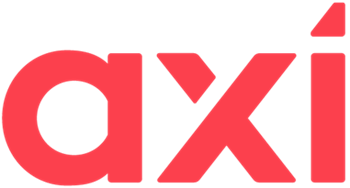Top 10 Best Brokers for Indices Trading

If you want to trade a bunch of stocks at once, indices trading is the way to go. It's a fun and exciting way to explore the diverse and dynamic world of finance. But you can't do it without a good broker.
That’s why we have compiled a list of the top 10 best brokers for indices trading, based on criteria such as number of indices, minimum deposit, maximum leverage, and reputation. No matter your level of experience or budget, this handy list will guide you to find the best broker for your goals.
Round-up List of indices brokers
1. Mitrade

Mitrade delivers a seamless and streamlined trading experience for those looking to venture into index trading. With access to 12 renowned indices from the US, Europe, Asia, and Australia—including the Australia 200, NAS100, Hong Kong 50, and Germany 30—traders can take advantage of diverse opportunities across global stock markets.
Regulated by ASIC, CIMA, and FSC, guaranteeing the safety of your funds and compliance with industry standards.
Mitrade's intuitive platform combines market updates, trading analysis, account management, risk management tools, and more for a comprehensive trading experience.
Cost-effective trading through zero commissions, minimal overnight fees, and competitive, transparent spreads.
Mitrade's negative balance protection safeguards your account from falling below zero, ensuring peace of mind in any market situation.
Mitrade provides a maximum leverage of 200:1 on indices, allowing traders to maximize potential gains.
Best for: those seeking a simplified trading experience on a user-friendly and feature-rich platform.
2. Hotforex (HFM)

HotForex (HFM) is a renowned broker that provides traders with access to a diverse range of 11 global indices, including those from Europe, Asia, and Australia. Traders can engage with popular indices such as AUS200, UK100, and USA100, allowing them to build diversified portfolios tailored to their preferences.
Regulated by esteemed authorities like FCA, DFCA, and FSCA, ensuring the safety of your funds and adherence to industry standards.
HotForex offers user-friendly and comprehensive trading platforms for a seamless and efficient trading experience.
Flexible leverage options, with up to 1:200 leverage on indices, allowing traders to control risk and capitalize on market changes.
Caters to both EU and international traders, striking a balance between accessibility and risk management.
Competitive spreads on indices ensure cost-effective trading for its users.
Best for: traders seeking a diverse range of global indices and flexible leverage options.
3. eToro

eToro stands out as one of the top broker for indices trading due to its focus on social and copy trading, and its extensive range of asset classes, including indices. The user-friendly platform fosters real-time discussions among traders, enabling them to leverage the eToro community's collective knowledge for valuable insights and up-to-date market news.
Emphasizes social and copy trading, creating an interactive environment for better decision-making and overall performance.
Offers a diverse selection of 13 indices from major markets, including Asia, the European Union, the United States, and Australia.
Competitive spreads on indices, such as the S&P 500 with a low spread of just 0.75 pips, ensuring cost-effective trading.
Provides leverage of up to 20:1 on European Union, Australian, and UK CFD indices, giving traders the flexibility to capitalize on market movements while managing risk exposure effectively.
Best for: traders interested in social and copy trading.
4. XTB

XTB is a top choice for indices traders, offering an extensive selection of over 35 different indices from various global markets. With access to major US, Australian, and European Union indices, traders can take advantage of a broad array of opportunities.
Competitive pricing structure, with spreads starting at just 0.3 pips for the US500, ensuring cost-effective trading for those seeking to maximize profit potential.
Flexible leverage options tailored to different regulatory environments, with up to 1:20 leverage for European Union and FCA traders and up to 1:200 leverage for international and FSCA traders.
Allows traders to effectively manage risk exposure while capitalizing on market movements.
Offers an impressive range of global indices, opening up numerous trading opportunities across various markets.
Best for: traders looking for a diverse selection of global indices and a competitive pricing structure.
5. Pepperstone

Pepperstone has earned its reputation as a popular choice for traders seeking a wide variety of CFD indices. With over 20 CFD indices, including major indices from the UK, US, and Europe, Pepperstone presents numerous trading opportunities for portfolio diversification.
Offers a unique spread betting service tailored for UK traders, allowing them to trade indices without separate commission charges – an attractive option for cost-conscious traders.
Competitive pricing with varying spreads depending on the index traded and time of day, such as 0.4 pips for the US500, 1 pip for the UK100, and 8.6 pips for the SA40.
Provides flexible leverage options to cater to different traders' needs, with up to 20:1 leverage for ASIC European and UK traders and up to 200:1 leverage for SCB and CMA traders.
Enables traders to effectively manage risk exposure while capitalizing on market opportunities.
Best for: traders looking for a wide variety of CFD indices and a unique spread betting service for UK-based traders.
6. AvaTrade

AvaTrade, a highly regulated and respected broker, offers diverse trading opportunities in the indices market. With over 30 indices covering the US, Europe, and Asia, traders can access a variety of markets tailored to their preferences.
Offers innovative synthetic indices, such as the cannabis index, dollar index, FAANG, and gaming esports indices, available through the MetaTrader 5 (MT5) platform for a cutting-edge trading experience.
Competitive pricing with fixed spreads starting at 0.25% on the US500.
Provides leverage on indices for traders in the EU, ASIC, FSCA, and Abu Dhabi, with up to 20:1 leverage available, catering to various risk tolerances and trading styles.
Offers spread betting on more than 200 assets, including indices, for traders based in the UK and Ireland, enabling tax-efficient trading while accessing a wide array of assets for portfolio diversification.
Best for: traders seeking innovative synthetic indices and a diverse range of traditional indices, with added benefits for UK and Ireland-based traders.
7. Fusion Markets

Fusion Markets stands out as a first-class trading broker, offering a diverse selection of 10 stock indices, including AUS200, EuroStoxx50, CAC40, DAX, HK50, Nikkei225, Nasdaq100, FTSE100, Dow Jones, and S&P 500. With sound licensing, an impressive product portfolio, and affordable fees, Fusion Markets appeals to cost-conscious traders.
Spreads starting from as low as 0.3, ensuring a cost-effective trading experience.
Flexible leverage options tailored to traders' regulatory environment, with up to 20:1 leverage for EU traders and up to 100:1 leverage for non-EU traders.
DupliTrade feature allows traders to copy successful traders' actions and learn from their strategies.
No non-trading-related fees, with no extra charges for deposits, withdrawals, inactivity, or minimum deposit requirements.
Best for: cost-conscious traders seeking a diverse selection of stock indices and flexible leverage options.
8. Oanda
![]()
Oanda delivers a comprehensive and customizable trading experience, providing traders access to 16 diverse indices from major markets such as the US, Australia, Singapore, Hong Kong, and Europe. This variety allows traders to explore different markets and diversify their portfolios.
Competitive spreads with spreads starting as low as 0.6 pips on the S&P 500.
Oanda Advanced Trader Program offers additional benefits, including reduced spreads based on tier, for indices and other assets.
Four-tier program with requirements ranging from a $10,000 balance and a monthly trade volume of less than $10 million to a balance of over $250,000 and a trading volume exceeding $500 million.
In the highest tier, traders can enjoy a $15 per million rebate or commission reduction.
UK traders can access spread betting options, while EU and Australian traders have access to leverage of up to 20:1, allowing effective risk management and capitalization on market movements.
Best for: traders seeking a customizable trading experience with a variety of indices and competitive spreads.
9. IC Markets

IC Markets provides a robust trading platform with access to over 20 indices, catering to diverse trading preferences. The selection includes popular indices like the Australian S&P 200 Index and UK FTSE 100 Index, as well as mini indices such as the US E-mini S&P 500 and US DJIA Index. This variety allows traders to explore different markets and diversify their portfolios.
Competitive spreads starting as low as 0.2 pips on the US500 index.
Offers flexibility to trade both spot and futures indices, ensuring a versatile trading experience tailored to various strategies.
Provides flexible leverage options, with up to 20:1 leverage for ESMA and ASIC traders.
Best for: traders seeking a robust platform with a diverse range of indices and competitive spreads.
10. AXI

Axi presents traders with a diverse selection of over 15 indices from markets around the world, including Europe, Asia, and Australia. This variety allows traders to explore different markets and diversify their portfolios according to their preferences.
Flexibility to trade both index cash CFDs and index futures CFDs, catering to a wide range of trading strategies.
Comprehensive trading platforms, including MT4, Axi Psyquation, and AxiOne, ensuring a seamless and efficient trading experience.
Flexible leverage options, offering up to 20:1 leverage on indices for EU, ASIC, and FCA traders, and up to 200:1 leverage for other international traders.
Competitive spreads on indices starting from as low as 0.2 pips with no additional commissions.
Spread betting options available for UK and Irish traders on various assets, including indices, providing tax-efficient trading opportunities.
Best for: traders looking for a diverse range of indices, competitive spreads, and flexible trading options.
Choose your best indices brokers
What is the Minimum Amount to Trade Indices?
The minimum amount required to trade indices depends on the broker and the specific index being traded. Some brokers offer a low entry threshold, with minimum trade sizes as low as 0.01 lots for numerous markets, catering to traders with diverse budgets and risk tolerances. For instance, a popular broker like IG Markets allows traders to start trading indices with a minimum trade size of just $1 per point for the S&P 500 index.
Before committing to a trading platform, it is crucial to carefully review the broker's terms and conditions to understand the minimum trade size and any associated fees. While trading with a smaller amount can help reduce your risk exposure, it may also limit your potential returns in the market.
Which Broker is Easiest to Trade Indices?
When it comes to finding the easiest broker to trade indices, several options come to mind, such as HotForex (HFM), eToro, and other reputable brokers in the market. HotForex provides a user-friendly platform and competitive features, while eToro is well-known for its social and copy trading capabilities, making it an attractive choice for beginners.
However, Mitrade stands out as the most beginner-friendly and easiest broker for trading indices. With a simple and intuitive platform that integrates market updates, trading analysis, and account management with risk management tools, MiTrade ensures a seamless trading experience. Offering low-cost trading, zero commissions, and a low threshold amount, Mitrade caters to traders with varying budgets and risk appetites. Additionally, the platform is regulated by respected regulatory bodies like ASIC, CIMA, and FSC, ensuring the safety of your funds.
With exceptional customer support and comprehensive educational content, Mitrade empowers novice traders to navigate the world of indices trading with ease and confidence. Its multi-platform compatibility allows for trading on the go, making it ideal for those looking for an accessible and easy-to-use platform to trade indices.
Is Synthetic Indices Trading Better Than Stock Indices?
The following table provides an overview of the pros and cons of synthetic versus stock indices:
Synthetic indices trading, which includes volatility indices and other artificial financial instruments, offers unique opportunities for traders seeking exposure to specific market conditions. However, they also come with their own set of risks, such as potential manipulation and limited historical data, making them more challenging to trade and analyze compared to stock indices.
Stock indices are generally a better choice for beginners, as they represent a broader range of companies within a specific market or industry sector. Stock indices, like the S&P 500, Dow Jones Industrial Average, and NASDAQ 100, offer a more stable trading environment with well-established market data and higher liquidity. As stock indices reflect the performance of multiple companies, they tend to exhibit lower volatility, making them a safer option for inexperienced traders.
Bottom Line
If you want to trade indices successfully, you need a reliable and trustworthy broker to partner with. We have reviewed many top brokers such as eToro, Axi, HFM, and more, and revealed their strengths and weaknesses. These brokers offer different features and benefits for different types of traders, but Mitrade is especially suitable for beginners.
Mitrade has a simple and intuitive platform, low trading fees, minimal deposit requirement, and excellent customer service. Mitrade makes it easy and safe for traders to explore the opportunities of indices trading. Before you start trading, make sure you learn the basics, have a clear trading plan, and manage your risks effectively. Enjoy trading!

What Are the Best Times to Trade Indices?
Can I Trade Indices With Leverage?
What is the Difference Between Trading Indices and Individual Stocks?
* The content presented above, whether from a third party or not, is considered as general advice only. This article should not be construed as containing investment advice, investment recommendations, an offer of or solicitation for any transactions in financial instruments.



